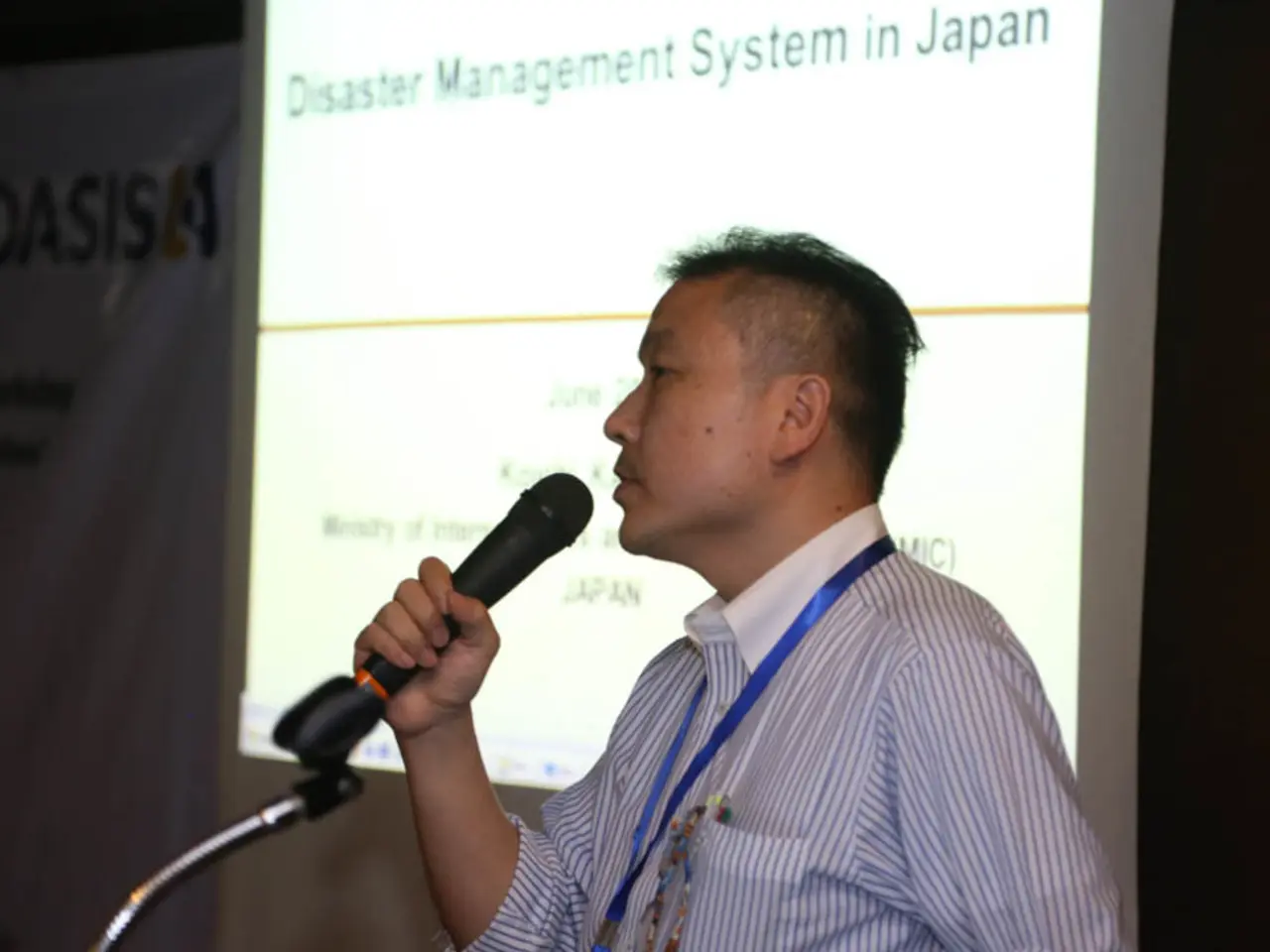Manufacturing Security: A Two-Sided Challenge Posed by Artificial Intelligence, Safeguarding yet Possibly Infringing Upon It
The manufacturing sector is witnessing a surge in investment from tech giants and startups in AI-driven cybersecurity solutions. This strategic move comes as the industry recognizes the symbiotic relationship between AI and cybersecurity, where advancements in AI tools can both empower manufacturers and adversaries.
Key players like IBM, Microsoft, and Google are investing heavily in AI research dedicated to securing manufacturing processes. The goal is to leverage AI for enhanced productivity and innovation while maintaining strong defenses against rising, evolving AI-powered cyber threats.
One of the critical strategies manufacturers are adopting is using AI defensively. AI and machine learning tools are deployed to continuously monitor manufacturing networks, detect anomalies, and automate threat responses. This enables faster identification and mitigation of attacks that may exploit AI, such as malware, phishing, or social engineering.
Another essential aspect of this approach is implementing Zero Trust Architecture. This strategy assumes no device or user is inherently trustworthy and employs multi-factor authentication, continuous behavior monitoring, microsegmentation, and strict access controls to limit exposure and lateral movement within networks.
Protecting data with advanced Digital Rights Management (DRM) is another crucial step. Sensitive manufacturing data is classified and tagged before AI interaction, and granular access controls are enforced. Real-time monitoring of AI prompt interactions and maintaining immutable audit logs are also important for accountability and forensic investigation.
Secure AI usage policies and training are equally vital. Manufacturers are developing clear policies on AI tool use in manufacturing, enforcing prompt engineering guardrails to prevent sensitive data leaks, and providing ongoing employee training to raise cybersecurity awareness.
Creating secure AI sandboxes and possessionless editing is another strategy that isolates AI experimentation environments for sensitive data and allows editing without local data copies to prevent unauthorized extraction or exposure of manufacturing secrets.
Manufacturers are also leveraging AI for vulnerability scanning and code hardening. AI-powered tools are used to enhance the security of manufacturing software and control systems by detecting flaws and adding multilayered security checks automatically.
Achieving a balance between AI implementation and cybersecurity is crucial. This involves comprehensive security protocols, employee training, data protection, regular assessments, and security measure upgrades. Implementing regular assessments and upgrading security measures are essential to staying one step ahead of cybercriminals.
The increased reliance on AI in the manufacturing sector has led to a rise in sophisticated cybersecurity threats, including deep fakes and AI-powered malware. Navigating this landscape requires manufacturers to remain vigilant, fostering a culture that embraces technological advancements while relentlessly pursuing cybersecurity excellence.
Startups are introducing niche solutions that address specific security challenges within the manufacturing sector. These innovative solutions, combined with the efforts of key players, are paving the way for the development of resilient cybersecurity frameworks that integrate AI technologies seamlessly.
Balancing AI integration with robust cybersecurity protocols is a critical need in the manufacturing sector. Manufacturers are tasked with the complex challenge of safeguarding their operations without compromising innovation. AI tools are used for enhanced security measures, predictive maintenance, threat detection, and operational efficiency.
Understanding and anticipating potential cybersecurity challenges is critical, requiring continuous adaptation to the rapidly changing threat landscape. The relationship between AI and cybersecurity in the manufacturing sector is both promising and perilous, as advancements in AI tools can both empower manufacturers and adversaries.
The manufacturing sector must remain vigilant, fostering a culture that embraces technological advancements while relentlessly pursuing cybersecurity excellence. By doing so, they can effectively balance AI integration with robust cybersecurity measures, ensuring a secure and innovative future for the industry.
[1] https://www.forbes.com/sites/forbestechcouncil/2021/04/21/how-ai-is-revolutionizing-cybersecurity-in-manufacturing/?sh=6f1b771a346b [2] https://www.forbes.com/sites/forbestechcouncil/2021/05/10/why-ai-should-be-at-the-heart-of-any-cybersecurity-strategy/?sh=3161c82d67d6 [3] https://www.forbes.com/sites/forbestechcouncil/2021/05/12/how-ai-is-transforming-cybersecurity-for-manufacturing/?sh=677339337771 [4] https://www.forbes.com/sites/forbestechcouncil/2021/05/13/how-ai-can-help-manufacturers-improve-cybersecurity/?sh=28e5b6f9621c [5] https://www.forbes.com/sites/forbestechcouncil/2021/05/14/how-ai-is-helping-manufacturers-to-improve-cybersecurity/?sh=66773b637a6d
- Encyclopedia entries on the manufacturing industry may highlight the strategic investments by tech giants like IBM, Microsoft, and Google in AI-driven cybersecurity solutions, aiming to fortify manufacturing processes and leverage AI for enhanced productivity and innovation.
- The finance sector's support for these initiatives is pivotal, as the rising, evolving AI-powered cyber threats require substantial investments in research and development to maintain strong defenses.
- As technology advances, it is crucial for the manufacturing sector to implement Zero Trust Architecture, secure AI usage policies, and continuous employee training to foster a culture of cybersecurity excellence, ensuring a secure and innovative future for the industry. [Sources: 1, 2, 3, 4, 5]




